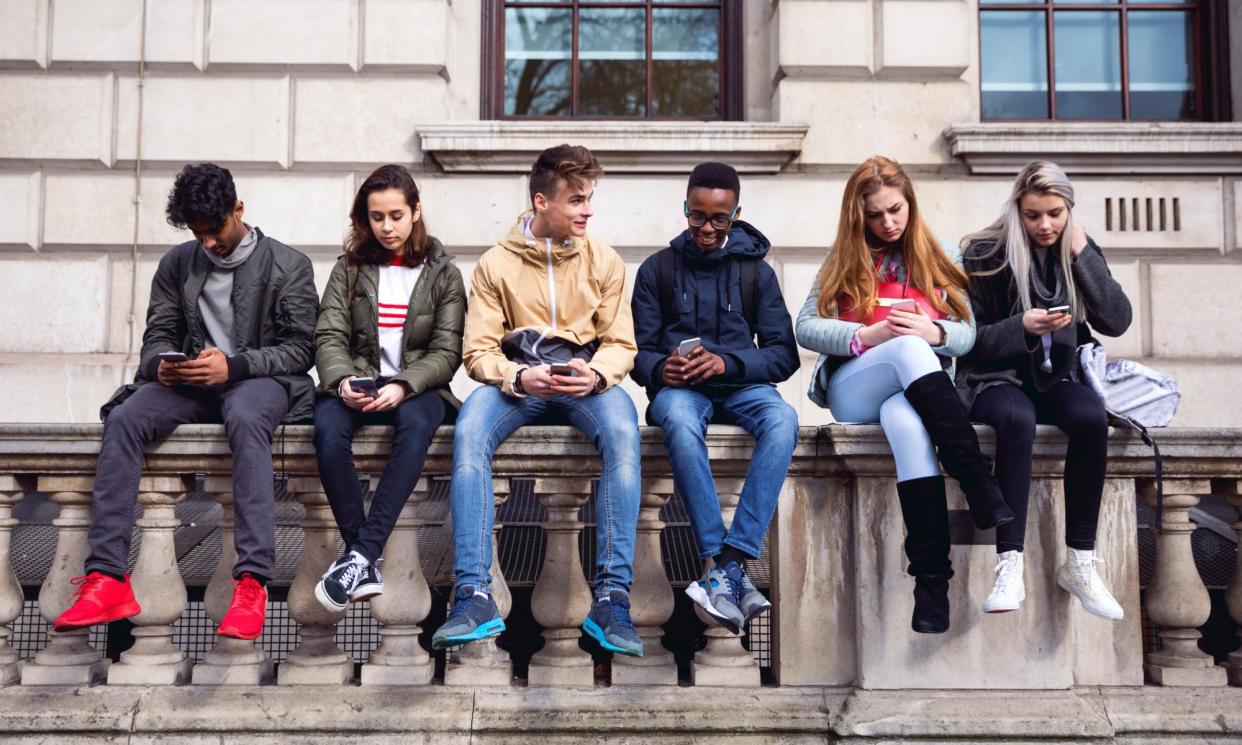Smartphones are not the biggest problem facing teenagers

Lucy Foulkes makes an important point, having interviewed adults about their own past experiences: “adolescence is bewildering to live through” and smartphones are only “one piece of a large and complicated puzzle” (I’m an expert on adolescence: here’s why a smartphone ban isn’t the answer, and what we should do instead, 15 June). I work with teenagers, and they are fed up with the narrative that smartphones and social media are the cause of their mental health issues. It lets us adults off the hook.
How much easier it is to blame phones and social media than to acknowledge the harm we do by taking away creative outlets in school such as art, music or sport, and focusing only on targets and rote learning. And how much easier it is not to take responsibility for fixing the other aspects of their lives that bring anxiety: the climate crisis; the lack of affordable housing; the cost of living crisis. Smartphones are a distraction from the real issue facing adolescents – they are fearful for their futures. Despite this, many of the young people I work with are hopeful, determined and courageous. Let’s celebrate them and ask them what would help, instead of looking for an easy answer and taking their phones away.
Dr Helen Care
Clinical psychologist, Woodstock, Oxfordshire
• Thank you for your fantastic article regarding Lucy Foulkes’s new book Coming of Age: How Adolescence Shapes Us. This is the first time an article on teenagers and social media has given a balanced argument and not left me feeling like a total failure of a parent.
In a frenzied world where smartphones and social media are a part of life, it is good to hear the counterargument to Jonathan Haidt’s book The Anxious Generation.
As a parent of four teenagers, all of whom have smartphones and engage in social media, I am more often than not left feeling I have somehow let them down. So it was entirely refreshing to turn to this article and realise it aligned with some of my own feelings and beliefs.
Jo Johnson
Cheltenham, Gloucestershire
• Lucy Foulkes is right: to an adolescent, anything forbidden becomes more desirable. Her piece reminded me of reading Forever Amber with a torch under the bedclothes 80 years ago. I remember nothing of the book, except that it was said to be about sex, but have a clear memory of the thrill of the forbidden. If mobiles were banned, they would be acquired anyway.
Alison Watson
London
• Surely an adult smartphone ban would lead to an even happier world.
Arnold Brown
London
• Do you have a photograph you’d like to share with Guardian readers? If so, please click here to upload it. A selection will be published in our Readers’ best photographs galleries and in the print edition on Saturdays.

 Yahoo News
Yahoo News 
